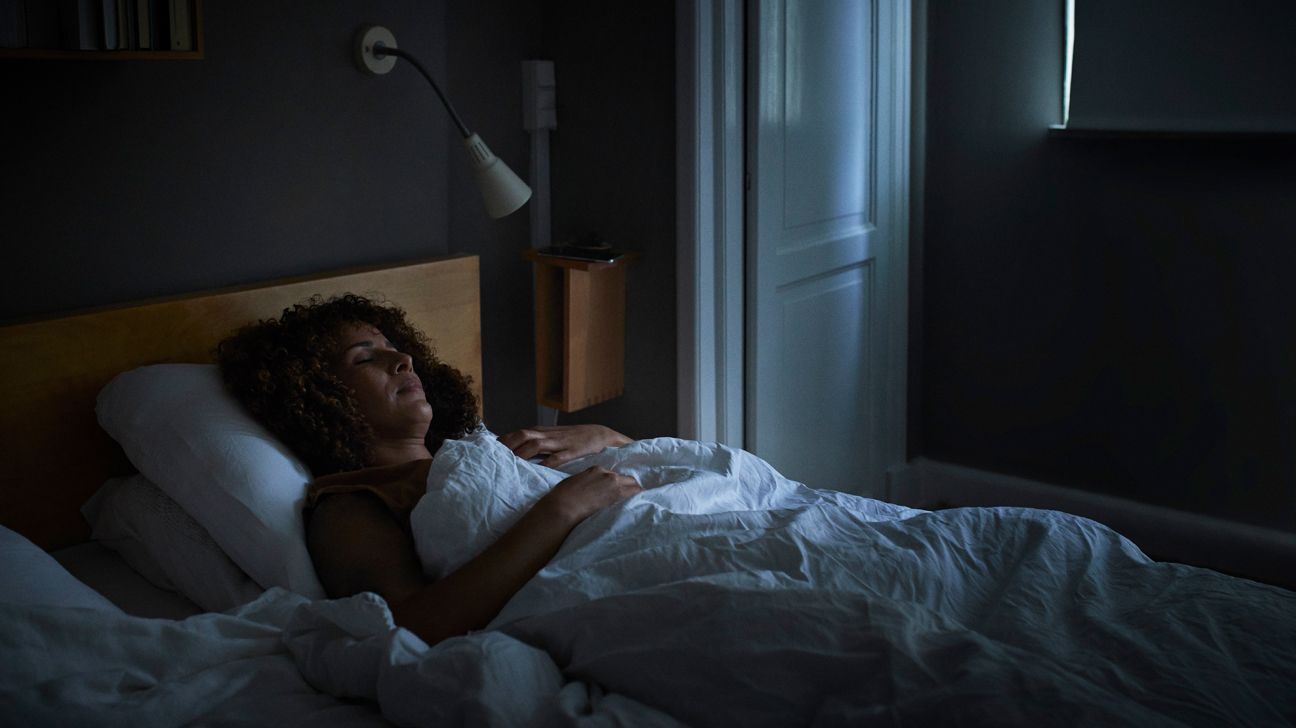
- New research shows the ideal sleep temperature among the aging population is between 68 to 77°F.
- Researchers also found climate change may be a potential reason for sleep problems.
- To improve your sleep quality, stick to a consistent sleep routine, maintain low light and low temperature in the bedroom and avoid overstimulating activities too close to bedtime.
Along with diet, exercise and lifestyle, getting enough sleep is one of the foundations of a person’s overall health.
According to a new study, the optimal sleep temperature in the bedroom for older adults is between 68 to 77 °F. Results were published in the journal Science of The Total Environment.
How temperature plays a role in sleep quality
Ambient temperature is a crucial environmental factor when it comes to falling asleep and staying asleep.
“For initiation of sleep, low ambient light and temperature send signals to the body that it this time to secrete neurotransmitters that facilitate sleep,” said Dr. Sudha Tallavajhula, sleep neurologist at UTHealth Houston and TIRR Memorial Hermann. “During sleep, we oscillate between phases where our body temperature is regulated differently.”
During REM sleep, the human capacity to regulate temperature is impaired.
This means that if room temperature is high, the body is unable to adjust to it, Tallavajhula explained. This leads to frequent arousals from sleep.
What the study found
Participants wore sleep monitors and environmental sensors, which monitored the length of sleep, efficiency, and restlessness. Researchers gathered data from 50 older adults, which included 11,000 nights of sleep and environmental information.
Findings revealed a 5 to 10% drop in sleep efficiency as temperature escalated from 77°F to 86°F.
How the outdoor temperature can take a toll on sleep
The study highlights the possible influence of climate change on sleep quality among older adults.
“Both climate change and urban induced warming (aka, urban heat island effect) can substantially increase nighttime temperatures,” lead researcher Amir Baniassadi, PhD, Hinda and Arthur Marcus Institute for Aging Research at Hebrew SeniorLife, and Harvard Medical School, stated. “Meanwhile, our study finds a rapid decline in quality of sleep as the nighttime temperature rises above 77 degrees. So, we expect a decline in sleep quality as cities around the country get warmer.”
This also means people who do not have the funds or ability to pay for cooling their home are at a higher risk. Additionally, people with lower socioeconomic status are more likely to live in houses and apartments that easily overheat and also more likely to live in dense urban areas with less green space where the urban heat island effect is more intense.
Finally, they also have less access to healthcare to deal with the health consequences of disrupted and inadequate sleep, Banaissadi added.
“Several studies have now looked at the effect of climate change on sleep quality, many in adults and also some in children,” said Tallavajhula. “In general, as we age, the depth of sleep and sleep duration are usually impacted.”
Additionally, our physiology also changes as we age, with sleep preferentially moving to earlier bedtimes. Aging adults with baseline medical conditions, mental health conditions, underlying sleep disorders, and those on certain medications are among the most vulnerable to environmental disruptions, Tallavajhula stated.
“As climate changes and temperatures rise, the odds are stacked against those with lower associated social economic status, which usually involves poor housing, inability to afford air conditioning due to elevated electricity costs and noisy environmental conditions,” Tallavajhula added. “These layers magnify underlying physiological changes in the elderly.”
Helping those most at risk
“We need to prioritize those who are at the highest risk in our research to better understand their needs and come up with strategies to help them adapt to a changing climate. So, our next step is to focus on those who are less able to regulate their thermal environment,” said Baniassadi.
They are particularly interested in two groups. First, older adults who are not able to cool down their homes due to economic reasons, especially those who live in subsidized housing.
The other group are older adults who can’t regulate their thermal environment due to limited mobility or cognitive decline, Baniassadi explained.
“We would like to explore, as an intervention, an automated way of regulating their bedroom temperature based on their specific needs,” said Baniassadi.
Habits to improve your sleep
Consistency is key in order to improve your sleep health. That requires adopting certain habits. Tallavajhula recommends the following:
Regular sleep schedule
This is perhaps the most important. Similar to physical training with exercise, mental training to sleep and wake up at certain times of the day reinforce the body’s sleep physiology.
Maintain low light and low temperature
This will also augment the sleep tendency.
If falling asleep is a problem, some individuals may benefit from avoiding naps during the day.
Wind down at the end of the day
Continuous stimulating activity, particularly towards the evening disrupts the brain’s sleep-initiating networks. Therefore, individuals prone to sleep onset insomnia would benefit from a consistent winding down schedule.
Speak to a sleep specialist
If all efforts to improve sleep on your own have failed, consultation with a sleep medicine expert to seek solutions is the next logical step. Most sleep disorders are treatable, with eminently satisfactory outcomes.
Takeaway
A new study demonstrates shows the optimal temperature for sleep among older adults is between 68 to 77°F.
Climate change may also play a role when it comes to sleep issues.
For a good night’s sleep, adhere to a consistent sleep schedule, keep the lights and temperature low in the bedroom and wind down at the end of the day.
Scientists Say This is the Best Temperature for a Good Night's Sleep
Source: Pinoy Lang Sakalam



0 (mga) komento:
Mag-post ng isang Komento